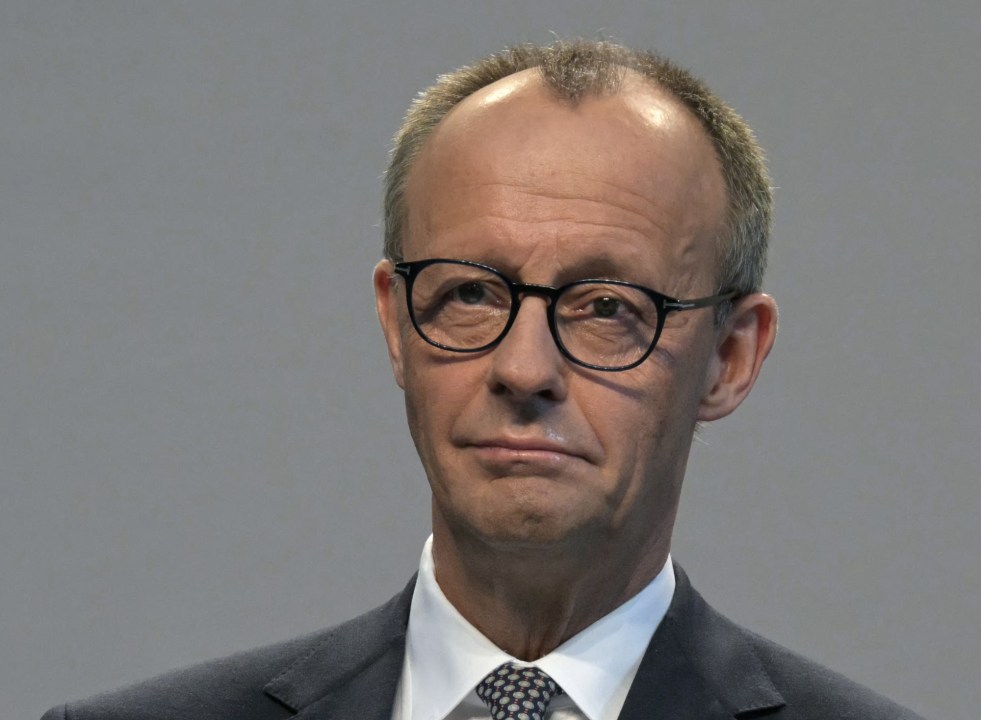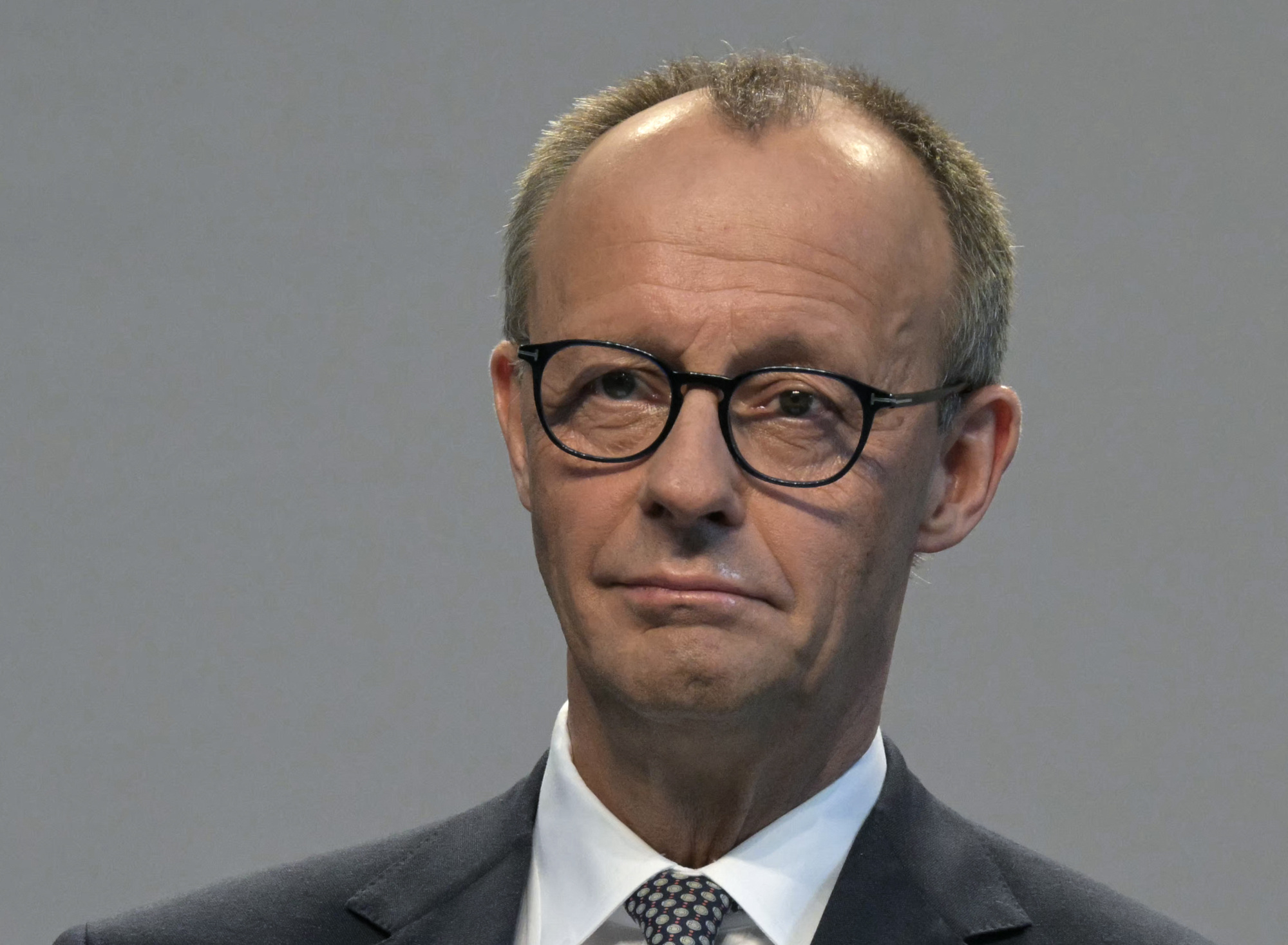Today, the CDU’s Friedrich Merz has signed a coalition agreement with the Social Democrats. In doing so he has formalised the most spectacular betrayal of centre-right voters in modern German history. The document might as well be written in red ink, given how thoroughly the SPD has dominated the negotiations despite suffering their most catastrophic electoral defeat since the Wilhelmine era.
In a press conference announcing the agreement, a stuttering and visibly uncertain Merz thanked the leaders of the SPD for the ‘great work’ of the past weeks. This is not how an election winner proudly presents his new government. There was fear in his voice. This is precisely the outcome the far-right AfD hoped for – the CDU capitulating to a party that secured a mere 16 per cent of the vote.
The coalition agreement is a masterclass in political sleight of hand. In rhetoric, it allows Merz to claim victory with a handful of minor concessions: the abolition of the three-year ‘turbo-naturalisation’ process (though the easier path to citizenship after five years remains untouched); some tightening of family reunification policies; strengthened border controls (but only ‘in coordination with European neighbours’); and harsher sanctions for welfare recipients, potentially including complete withdrawal of benefits.
The security provisions similarly have the appearance of substance without the reality. A voluntary military service model will be introduced, with groundwork for military registration laid this year. A National Security Council will be established within the chancellor’s office to coordinate integrated security policy – bureaucratic window dressing that will do little to strengthen Germany’s depleted defence capabilities.
The SPD’s political sorcery borders on the supernatural. Having been comprehensively rejected by the electorate, scraping together a mere 16 per cent of the vote, they’ve nonetheless managed to transform this historic humiliation into remarkable leverage. Like some political version of the loaves and fishes miracle, they’ve turned electoral starvation into a series of policy concessions. While they may be hopeless campaigners who have completely lost their traditional working-class constituency, they’ve proven themselves master blackmailers at the negotiating table.
Merz, who spent years positioning himself as the antidote to Angela Merkel’s leftward drift, has folded. The constitutional debt brake – that sacred cow of German fiscal conservatism – has been effectively slaughtered on the altar of coalition convenience. The CDU, having secured 28 per cent of the vote while promising restraint and responsibility, appears to have capitulated to virtually every SPD demand. And the electorate disapproves of this. The latest polls show the CDU dropping to 24 per cent, on par with the far-right AfD.
As Welt editor Ulf Poschardt told The Spectator, liberal and centre-right voters have ‘utterly lost their political home.’ This isn’t journalistic hyperbole – it’s a devastating reality. Where exactly are Germany’s fiscal conservatives, free marketers, and classical liberals meant to go? Their traditional refuge, the Free Democratic party (FDP), has not only failed to secure a single seat in the new Bundestag but appears determined to compound its tragic irrelevance.
This leaves Germany’s centre-right electorate with a grotesque non-choice: either stomach Merz’s SPD-lite compromises, drift toward the ‘brown-tinged socialism’ of the AfD, or simply withdraw from politics altogether. The AfD, despite its nationalist trappings, offers economic policies that would make even left-wing trade unionists blush – protectionism, expanded welfare, and state intervention being central to their platform. Their rightward cultural positioning merely disguises a fundamentally collectivist economic agenda.
What makes this betrayal particularly egregious is its timing. As Europe confronts unprecedented security challenges from Russia, economic competition from China, and the uncertainties of a second Trump administration, Germany desperately needs coherent center-right leadership. Instead, it’s getting a warmed-over grand coalition dominated by a party that German voters had explicitly rejected.
The fiscal consequences alone should terrify anyone with even a passing familiarity with economic history. Germany’s much-vaunted debt brake, a constitutional provision limiting structural deficits, has been functionally neutered through accounting gimmickry worthy of Enron’s finance department. The proposed €500 billion ‘future investment fund’ represents nothing less than deficit spending dressed in Sunday clothes. This fiscal recklessness comes precisely when Germany’s economy already teeters on the brink of recession and its industrial base faces existential challenges.
More devastating still is what this capitulation reveals about the state of Germany’s political imagination. The CDU, once the party of visionaries such as Adenauer and Erhard – the architects of the post-war economic miracle – now appears incapable of articulating a compelling center-right vision distinct from social democratic orthodoxy. They’ve opted for the path of least resistance, effectively becoming SPD tribute artists performing covers of leftist greatest hits.
For Europe, which is yearning for a strong leadership, this development is concerning. A Germany unmoored from fiscal sanity and lacking authentic centre-right representation will be unpredictable and potentially unstable. The resulting vacuum creates fertile ground for the very extremism that establishment parties claim to oppose. When mainstream conservatives betray their principles, they don’t convert their voters to progressivism – they orphan them politically, leaving them susceptible to radical alternatives.
Perhaps most troubling is how this coalition betrays the very economic model that made post-war Germany successful. The social market economy, that careful balance between free enterprise and social responsibility, requires fiscal discipline as its foundation. By embracing debt-fuelled spending, Merz has not only abandoned his voters but also the economic philosophy that delivered German prosperity for generations. As Germany’s industrial base continues to hollow out, with manufacturing giants from BASF to Volkswagen either scaling back their operations or relocating abroad, the country desperately needed a champion for economic revival. Instead, it got a politician who, when faced with difficult choices, opted for the SPD’s easy answers of borrowing and spending. The sad irony is that this capitulation won’t even deliver political rewards – the moment economic difficulties inevitably worsen, voters won’t remember Merz’s compromises, only that he failed to deliver prosperity.
In this grand betrayal, Merz has squandered perhaps the last opportunity to halt the AfD’s seemingly inexorable rise
In this grand betrayal, Merz has squandered perhaps the last opportunity to halt the AfD’s seemingly inexorable rise. The election results made abundantly clear that German voters are desperate for a serious plan to address illegal migration – the issue that has propelled the far-right party from fringe status to mainstream contender. Yet the coalition agreement contains precious little to suggest that either the CDU or SPD has truly grasped the urgency of the situation. With each immigrant that arrives on Germany’s border and each headline about migrant crime, the AfD gains another few thousand supporters. The political mathematics are brutally simple: either established parties offer real solutions to the migration crisis that so concerns ordinary Germans, or the AfD will eventually overtake the CDU as the dominant force on the right. The countdown clock is ticking. This coalition may well be remembered as the final chapter of the old political order before Germany’s lurch into genuine populist territory. Merz had his chance to prove that mainstream conservatism could address voters’ concerns without abandoning principle; instead, he has handed the AfD a political gift they could scarcely have hoped for.
Friedrich Merz had positioned himself as the saviour who would restore his party’s conservative credentials after years of Merkelian drift. He has instead revealed himself as just another spineless politician, willing to sacrifice principle for power. For Germany’s disillusioned centre-right voters, today’s signing ceremony isn’t just another coalition agreement – it’s a funeral for the political home they once knew.








Comments